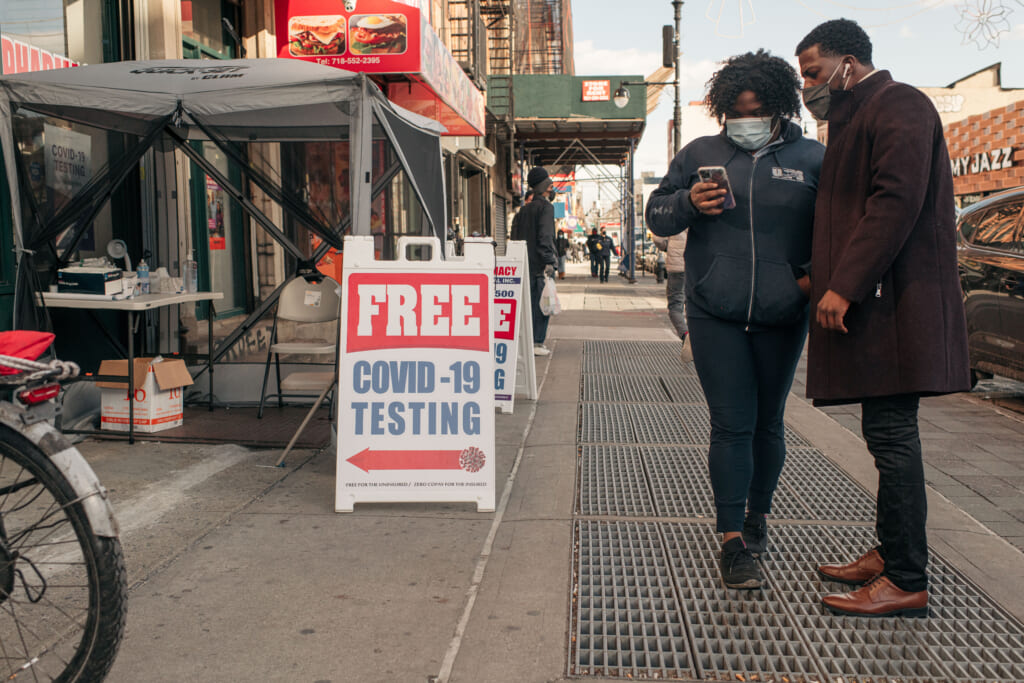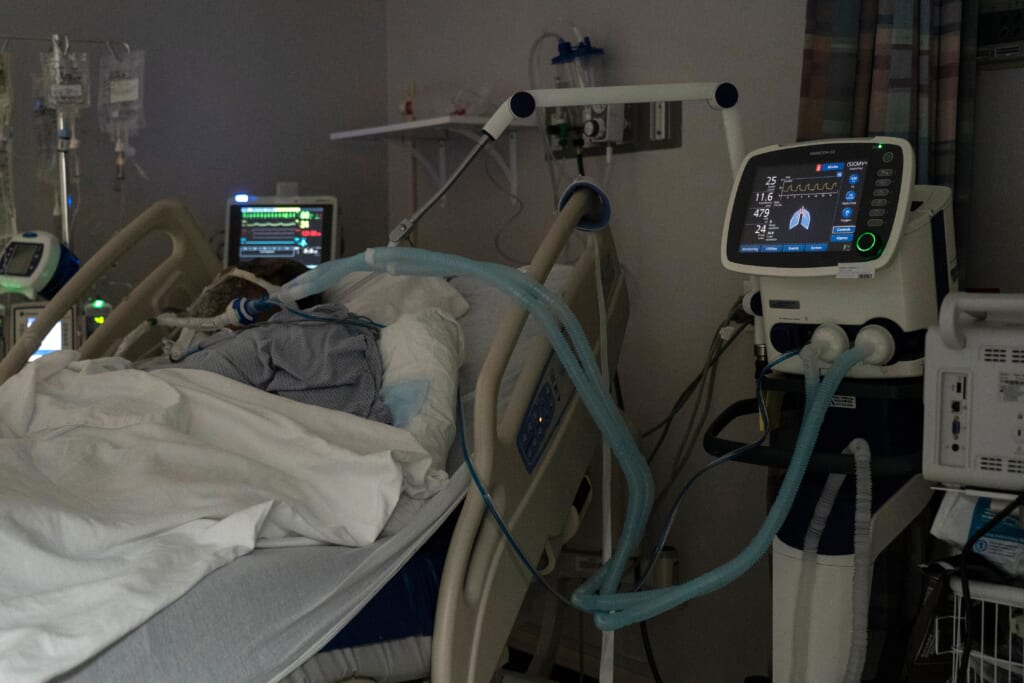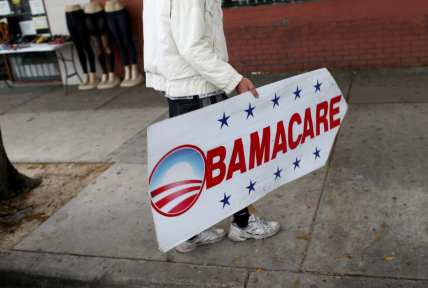Is deliberately getting omicron worth the risk?
OPINION: The idea of conferring natural immunity by exposing yourself to the least deadly COVID variant, omicron, is much more appealing in theory than in reality
The short answer is no.
The idea of intentionally trying to catch omicron, the fast-spreading COVID-19 variant, is an idea that’s been put forth by all types of people — from the vaccinated and boosted to the unvaccinated and outright anti-vaxxers.
The idea behind deliberately exposing oneself to a potentially life-threatening virus isn’t new. In the 1950s, 60s, and 70s “chickenpox parties” were all the rage. At these gatherings parents would try to intentionally expose their unvaccinated children to a child with chickenpox in hopes that they would get the disease, conferring onto them what was believed to be a more natural form of immunity.

The practice of spreading chickenpox to unsuspecting children had some success, but became less popular over time, as more and more children died. In fact, as recently as the early 1990s more than 10,000 people were hospitalized and 100-150 people died annually from complications of chickenpox. On the contrary, widespread vaccination has nearly eliminated this risk.
Prior to the coronavirus pandemic, most people would agree that exposing someone to a potentially deadly disease is probably not a good idea, even if there is a greater likelihood of developing mild symptoms and virus-fighting antibodies because there is no way to know if you would end up with a serious complication leading to hospitalization or death.
Amidst the pandemic, that mindset has changed to some degree with some believing that this is a risk worth taking, but it is not when there are much safer options at our disposal. That’s why the Centers for Disease Control and Prevention (CDC) recommends vaccination. Vaccines ensure that you get immunity without taking on the high risk of developing a serious illness.
The aggressive spread of omicron and the uncertainty of whether the current vaccines fully protect us against this new subtype has raised the brow of public health officials and Americans alike. So far the vaccines are working and people are managing their symptoms generally well.
Omicron’s symptoms are milder than delta and other variants, and often self limiting, similar to another coronavirus, the common cold, but the two are not the same. Omicron is a potentially deadly disease that has landed far too many children in the ICU, and those with more severe omicron infections would strongly refute the mild tag that society has slapped on their symptoms.

Omicron’s mild symptoms are largely the function of the vaccine’s effectiveness. Omicron symptoms appear milder in nature for those who are vaccinated and live to tell share their experiences, but the toll on those who are unvaccinated is anything but — according to modelers an estimated 50,000 to 300,000 more Americans, mostly unvaccinated, could die by the time the wave subsides in mid-March, pushing the death toll since January 2020 to over 1 million.
Doubly, no two people have the same exact COVID experience and symptoms vary widely from person to person. Mild symptoms in one person may be moderate symptoms in another and last for a long period of time. The immune systems of older people (65+) and the immunocompromised may be unable to withstand the assault of omicron, underscoring the importance of protecting yourself and loved ones. Finally, the term mild ignores the long-COVID symptoms associated with less severe cases.
Research comparing omicron and delta infections in South Africa between April and November also suggests that the omicron variant has a lower risk of hospitalization, by as much as 80%, largely because the virus lives in the nose sparring the lungs.
But more recent data has found that this version of the virus has a far greater affinity for children, who are amongst the most vulnerable populations in the country. Just over half (54%) of eligible children, between the ages of 12 and 17, have received at least 2 doses of the COVID-19 vaccine, and only a quarter of children between ages 5 and 11 have received their first dose, according to the CDC.
This means that children are more likely to pass the virus on to their peers, parents and teachers.
Subjecting yourself to omicron also means you are worsening the health care crisis that is happening right in our backyards. Rising COVID infections among hospital workers coupled with a wave of resignations from burned-out doctors and nurses have led to major staffing shortages, affecting treatment and likely quality of care.
Even more, supply chain lags and hospital bed shortages mean that resources are critically low when demand is at its highest, a sobering reminder that our present-day health care “system” is still not equipped to absorb a high influx of patients with acute and chronic care needs. Our hospital systems simply cannot withstand another slam, and it’s only a matter of time until it folds under stress.
In fact, some hospitals already have, with nearly a quarter of hospitals around the country reporting that they are suffering from critical staff shortages and little to no intensive care unit beds, according to the US Department of Health and Human Services.
The idea of conferring natural immunity by exposing yourself to the least deadly variant is much more appealing in theory than reality. If you believe in immunity and bolstering the body’s defenses against COVID-19 there are safer ways to do so. We have a social responsibility to help one another live as safely as possible, while also being mindful of how our actions might encumber a system that is already severely taxed. That’s why the idea of “omicron parties” is as much a moral decision as a medical one.
So brace yourselves as we enter the next phase of the pandemic — COVID-19 as a chronic disease that can be well managed with the old school tactics of handwashing, mask wearing, and vaccination.

Dr. Shamard Charles is the executive director of graduate studies in public health at St. Francis College and sits on the Medical Advisory Board of Verywell Health (Dot Dash-Meredith). He is also host of the health podcast, Heart Over Hype. He received his medical degree from the Warren Alpert Medical School of Brown University and his Masters of Public Health from Harvard’s T.H. Chan School of Public Health. Previously, he spent three years as senior health journalist for NBC News and served as a Global Press Fellow for the United Nations Foundation. You can follow him on Instagram @askdrcharles or Twitter @DrCharles_NBC.


